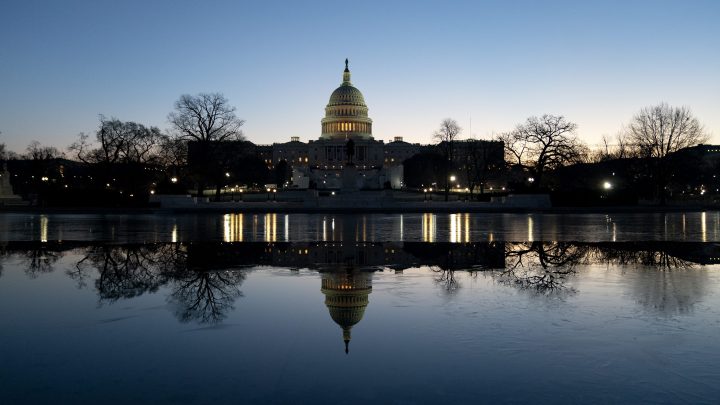
Federal labor board lobbies for additional funding, staffing resources as Congressional deadline looms
Share Now on:
Federal labor board lobbies for additional funding, staffing resources as Congressional deadline looms

Update (Dec. 20, 2022): The 2023 government funding package includes a $25 million budget increase for the National Labor Relations Board. If passed, it would mark the first budget increase for the agency in nine years. Though advocates for the NLRB see it as a win, they also stressed that more funds were necessary to fully staff the organization.
The budget for the National Labor Relations Board — the federal agency tasked with safeguarding private-sector workers’ rights to organize and engage in collective bargaining — has stagnated since fiscal year 2014.
Now, as a deadline to finalize the federal government’s FY2023 budget looms and as the workload for agency employees has exploded, NLRB leadership, union representatives and elected officials have become increasingly vocal about the agency’s funding needs.
The NLRB’s annual budget has remained at around $274 million since 2014. When adjusted for inflation, that constitutes a nearly 25% drop in funding.
“We’re talking about crumbs when it comes to the federal budget,” said California Representative Ro Khanna in a rally hosted Tuesday outside the Capitol. “Organizing only succeeds if we have a funded NLRB.”
At the same time as the agency’s funding shortfalls, union election petitions and unfair labor practice charges — which fall under the NLRB’s purview — have jumped by double-digit percentages in the last fiscal year. This uptick in workload falls on an already overburdened staff; overall staffing for the NLRB has dipped by 39% since fiscal year 2002.
“In all of America, all private-sector labor law that involves union activity, it all goes through this one federal agency,” said Cathy Creighton, director of Cornell University’s ILR Buffalo Co-Lab and former field attorney for the NLRB. “So when you think of all health care workers, all auto workers, all manufacturers, all hotel workers, anybody who works for a private employer — meaning anyone who works for someone that’s not the government — is covered by this statute.”
The NLRB is governed by a five-member board and a General Counsel, both of whom are appointed by the president with consent of the Senate. As a result, funding the agency has become a highly fraught and politicized topic between Democrats and Republicans.
“Republicans have remained resolved that they will not accept a single dollar of an increase to the NLRB. And so that has played out over and over again, the last nine years,” said Mike Bilik, legislative co-chair of the NLRBU — the union representing rank-and-file workers at the Agency — and an NLRB trial attorney.
Meanwhile, public support for unions continues to grow. An estimated 71% of Americans support unions, according to a Gallup poll from August. That’s the highest union approval rating in decades.
One possible reason for such a high level of support is that the benefits of unionization can have spillover effects felt by non-unionized employees.
“If unions are able to negotiate higher pay and better working conditions, you know, employers are gonna have to compete with each other to have those same standards in order to attract workers. So even if you are not a unionized worker, the funding of the NLRB still matters,” said Margaret Poydock, a policy analyst at the Economic Policy Institute.
Members of the NLRB union have also become increasingly vocal about the dire funding strains facing the organization. Growing responsibilities and a slimming staff have taken a toll on workers at the agency, said union legislative co-chair Bilik.
The overwork — and potential furloughs the NLRB has warned about — could then lead to delays in some of the day-to-day duties performed by the NLRB, he added.
While the NLRB and the NLRBU are currently in disagreement over teleworking rights, there is a front on which they both agree:
“We are in complete agreement with the NLRBU on the urgent need for additional resources to ensure that NLRB employees can effectuate our Congressional mandate,” said NLRB General Counsel Jennifer Abruzzo in an email statement to Marketplace.
The clock is ticking to secure the agency’s funding though. Rep. Rosa Delauro, chair of the House Appropriations Committee, announced earlier this week that a framework had been reached to enact an omnibus spending bill.
Though the announcement marks progress toward finalizing a spending agreement for the federal government, any increases to NLRB budget would face an uphill battle in the evenly-divided Senate.
There’s a lot happening in the world. Through it all, Marketplace is here for you.
You rely on Marketplace to break down the world’s events and tell you how it affects you in a fact-based, approachable way. We rely on your financial support to keep making that possible.
Your donation today powers the independent journalism that you rely on. For just $5/month, you can help sustain Marketplace so we can keep reporting on the things that matter to you.












